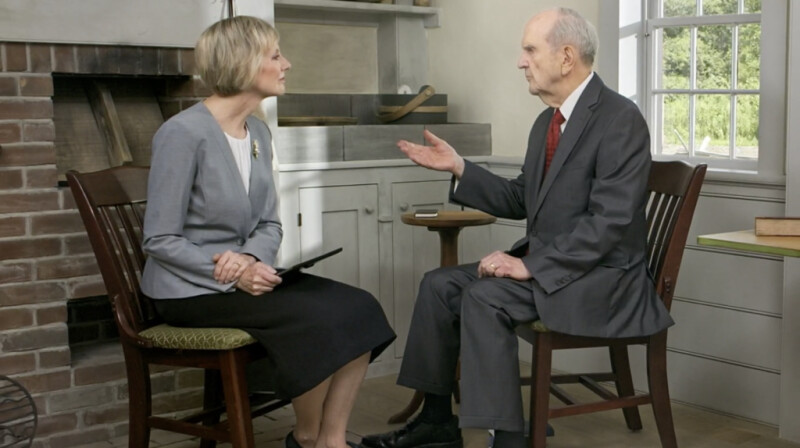There is no doubt that since Russell M. Nelson became President of The Church of Jesus Christ of Latter-day Saints, the Church has seen changes at an unprecedented rate. He has announced more temples than any prophet before him, has issued historic invitations, and has made many policy and language updates to the general handbook and temple ceremonies under his leadership.
A significant number of those policy and administrative changes have allowed Church members—particularly women—to feel more unified, qualified, and involved in Church leadership and sacred ordinances. And on this week’s episode of the Church News podcast, host Sarah Jane Weaver and Relief Society General President Jean B. Bingham discussed President Nelson’s unique and appreciated approach to including more women in the Church.
On the podcast, Weaver shared that for her, one of President Nelson’s most meaningful changes as prophet has been the invitation for women to be witnesses for baptisms and temple sealings. President Bingham also shared her enthusiasm: “Oh, I have absolutely loved that, and it’s been delightful to be in the temple and watch sisters have that first experience. It really makes women feel that they are interdependent, we can really work together, that it’s not women doing one thing, and men doing another. But we truly are united in this work of the Lord, and that’s just a symbol of that greater unity that we’re experiencing in the Church.”
President Bingham also shared a significant experience she had early on in President Nelson’s administration. A few months before his October 2018 general conference address, he called her into his office and asked for her thoughts on a talk he was preparing for the women’s session. She knew he was serious when he invited her into his office, gave her a copy of his talk and a pencil, and began to read through his planned message. She made some notes, reviewed them with him, and he accepted every change. The next week, he called in the entire Relief Society General Presidency and asked for the same feedback. With pencils in hand, each sister in the room had even more suggestions for the prophet on some improvements he could make.
“It was fascinating,” President Bingham told Church News, “because we’re all different women, haven’t all had the same background, and so different things stood out to them than stood out to me. So we had kind of a council, and as we went through each of their ideas and suggestions, he had questions, and we went back and forth. And he said, ‘Thank you so much.’ And as he gave his talk in October, we noticed the places that he had accepted that counsel and tried to make it as clear as possible ... that his intent was to express his love and clear, prophetic counsel to the sisters.”
Weaver shared her own story of being on an international assignment and watching President Nelson defer to the thoughts, experiences, and expertise of women. When he was asked by a reporter about women feeling excluded within the Church, President Nelson responded, “Why don’t we ask a woman about that?” and literally gave up his chair for Sister Sheri Dew, former counselor in the Relief Society General Presidency and executive vice president of Deseret Management Corporation, to answer the question.
Both podcast host and interviewee wholeheartedly agreed that President Nelson has brought a historic and important perspective on the role of women in the Church to his role as President of The Church of Jesus Christ of Latter-day Saints. He has taken his own consistent, prophetic counsel to “Hear Him” to heart and found ways to hear the voice of the Lord in involving and elevating the voices of women within the Church.
President Bingham concluded, “President Nelson has given the message of, ‘This is an ongoing revelation in this Church,’ and we’ve seen it over and over, in temple language, in policies, so many things that have happened during President Nelson’s administration. He is remarkable—that’s not even a word that does him justice at all—He is unique. He has been prepared for this particular time when we’ve needed this kind of openness in ... looking at women’s concerns.”


